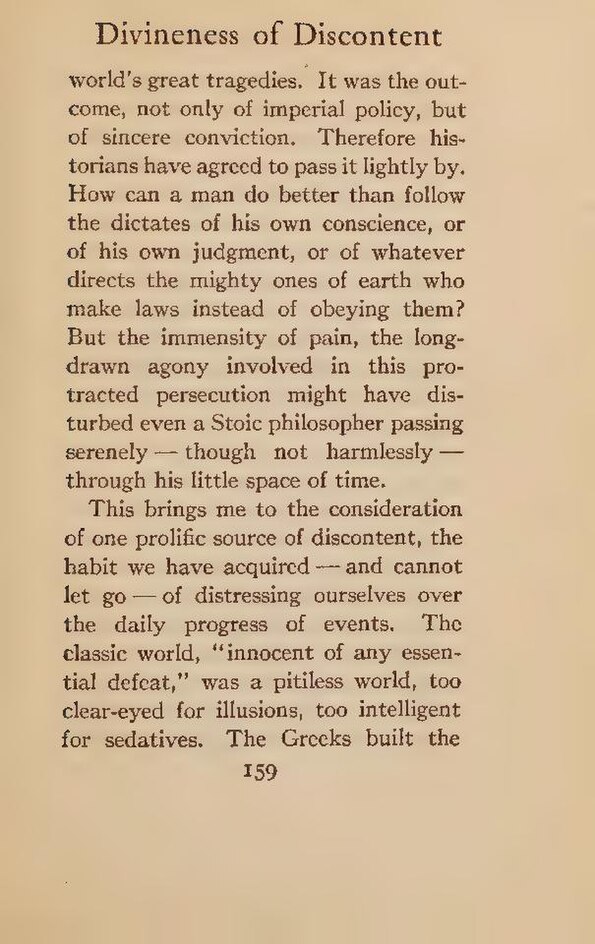world's great tragedies. It was the outcome, not only of imperial policy, but of sincere conviction. Therefore historians have agreed to pass it lightly by. How can a man do better than follow the dictates of his own conscience, or of his own judgment, or of whatever directs the mighty ones of earth who make laws instead of obeying them? But the immensity of pain, the long-drawn agony involved in this protracted persecution might have disturbed even a Stoic philosopher passing serenely—though not harmlessly—through his little space of time.
This brings me to the consideration of one prolific source of discontent, the habit we have acquired—and cannot let go—of distressing ourselves over the daily progress of events. The classic world, "innocent of any essential defeat," was a pitiless world, too clear-eyed for illusions, too intelligent for sedatives. The Greeks built the
